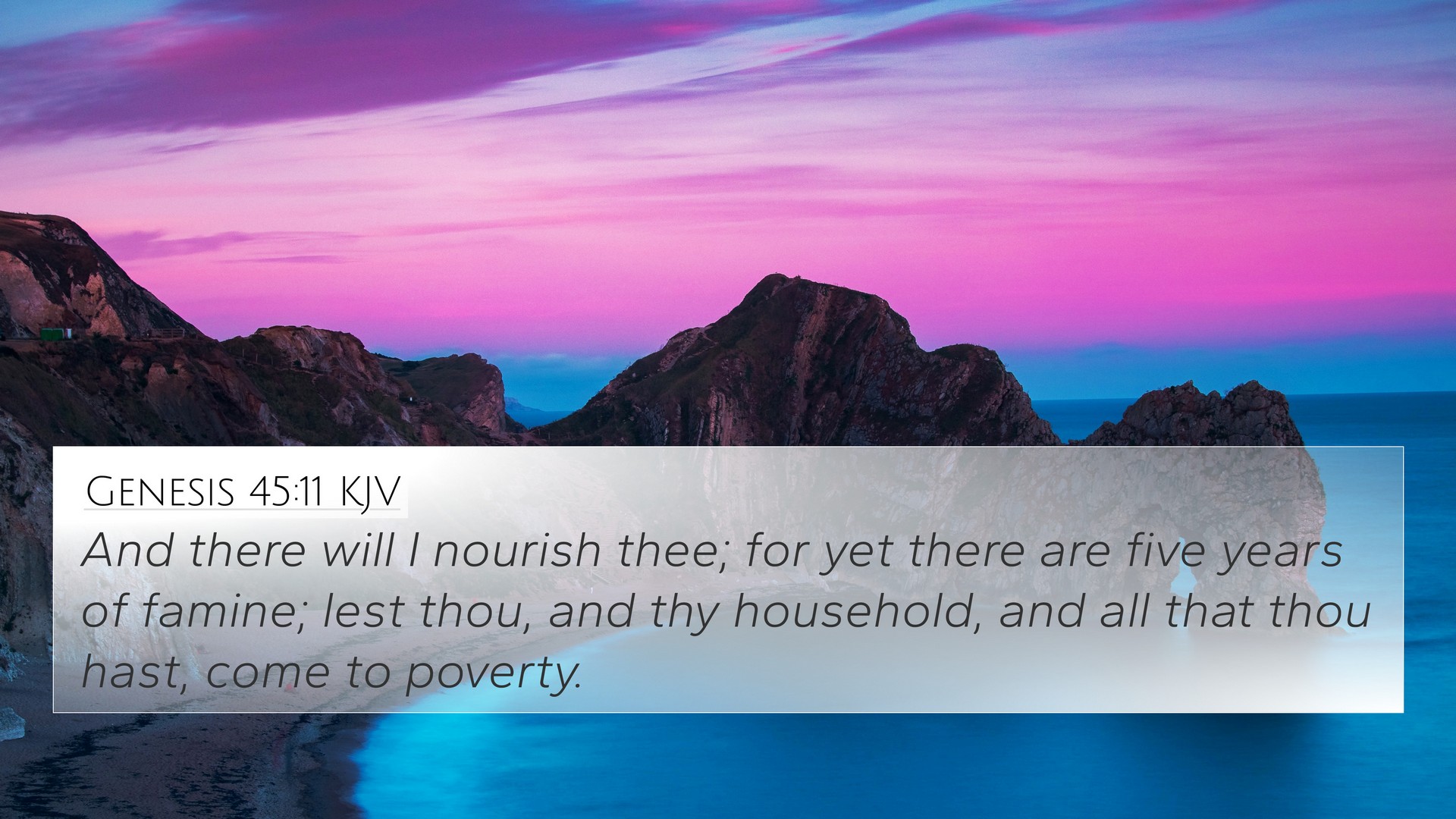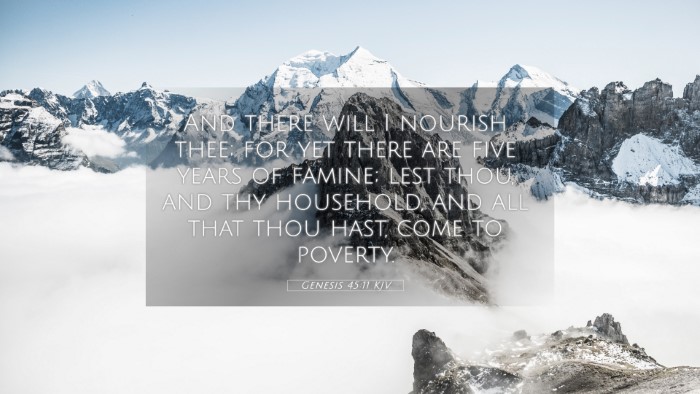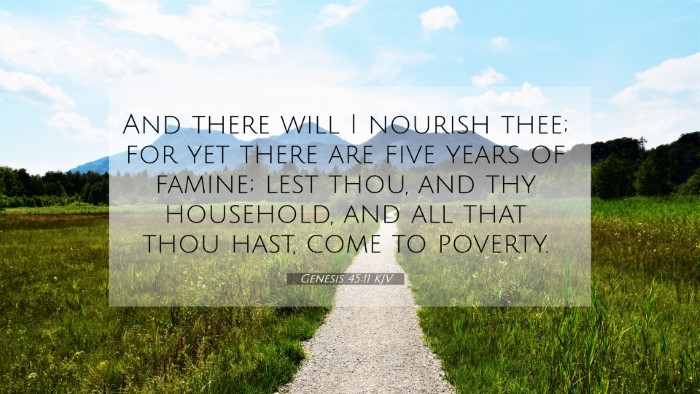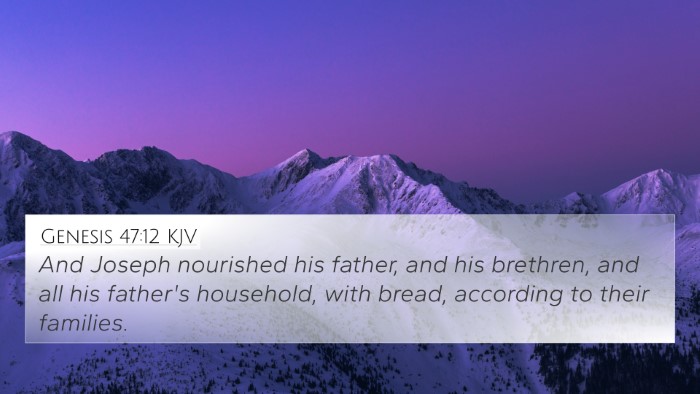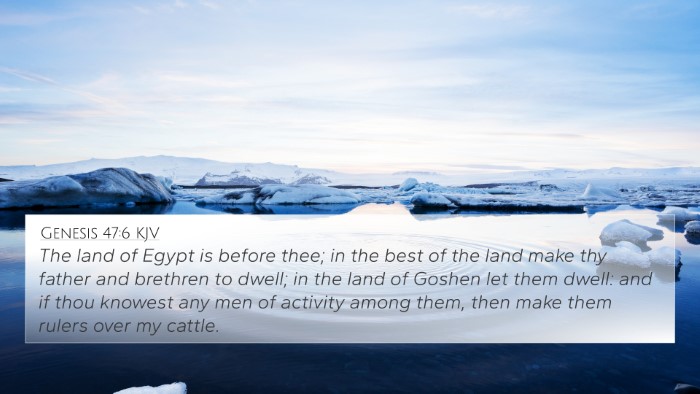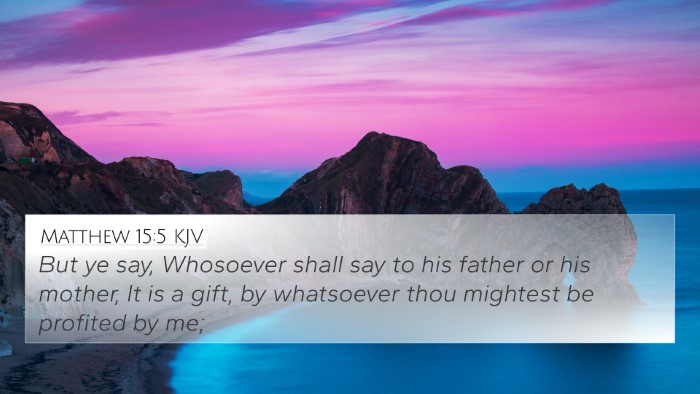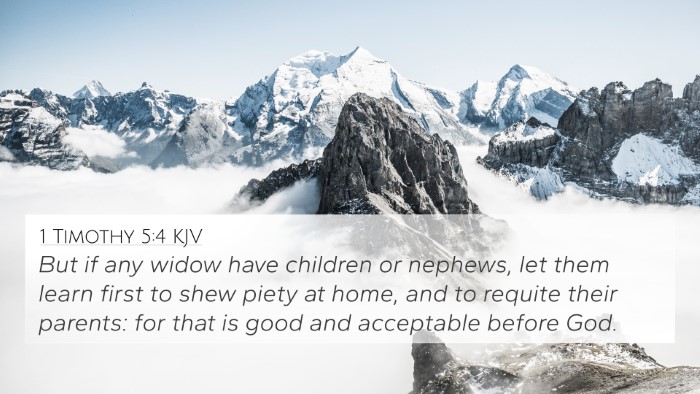Understanding Genesis 45:11
Genesis 45:11 states, "And there will I nourish thee; for yet there are five years of famine; lest thou, and thy household, and all that thou hast, come to poverty."
This verse is part of a profound narrative where Joseph reveals his identity to his brothers during a time of severe famine. The context suggests a mix of familial restoration and divine providence. Below, we will explore the meaning and implications of this verse through cross-referencing, utilizing insights from public domain commentaries.
Commentary Insights
Matthew Henry's Commentary
Matthew Henry emphasizes the notions of reconciliation and provision. He points out that Joseph's statement demonstrates his role as a protector and provider, fulfilling his responsibility toward his family amidst crisis. The implication of nourishment is both physical and spiritual—the latter being an integral theme in scripture. Joseph's ability to provide for his family showcases God's overarching plans and mercy during difficult times.
Albert Barnes' Notes
Albert Barnes highlights the assurance Joseph provides to his brothers. The phrase "there will I nourish thee" indicates a place of safety and sustenance. Barnes notes that this reflects God's providence and care, demonstrating that even in dire situations, God's plans will encompass protection for His people. The five years of famine symbolically relate to trials in life that God prepares us for, ensuring believers are not left in want.
Adam Clarke's Commentary
Adam Clarke expands on the geographical significance of "there" referring to Egypt, which symbolizes both a place of refuge and trials for Israel. He stresses that this promise of nourishment portrays a prophetic foresight into how God establishes a lineage that will eventually lead to the Israelites' redemption. Clarke's insights remind readers of God's sovereign hand actively participating in humanity's journey towards salvation.
Thematic Bible Verse Connections
This verse opens avenues for deeper study through its connections to other scriptures. Below are some notable Bible verse parallels:
- Genesis 47:12: Joseph's continued provision for his family during the famine.
- Exodus 16:4: God providing manna in the wilderness, showcasing continuous divine nourishment.
- Psalms 33:19: The Lord delivers them from death and keeps them alive in famine.
- Matthew 6:31-33: Jesus teaches about God's provision and asks to seek His kingdom first.
- John 6:35: Jesus, identifying as the bread of life, assures eternal sustenance.
- Philippians 4:19: Promises God will supply all needs according to His riches in glory.
- 2 Corinthians 9:8: God is able to provide sufficiency in all things, reminiscent of Joseph's provision.
Cross-referencing Biblical Texts
Understanding Genesis 45:11 involves acknowledging its inter-Biblical dialogue, thus enhancing its interpretation. Through a detailed cross-reference, we can observe how this verse relates to themes of provision, protection, and familial bonds throughout scripture.
1. Tools for Bible Cross-Referencing
Utilizing a Bible concordance or a Bible cross-reference guide can help navigate connections between Genesis 45:11 and other verses. For deeper insight:
- How to find cross-references in the Bible: Start with a key word or phrase and explore its occurrences across scriptures.
- Identifying connections between Old and New Testament: Recognize how themes develop from early texts to later revelations.
Comparative Bible Verse Analysis
A comparative study of verses illuminates the continuity in God's character. For example, comparing Joseph's provision to Jesus’ teachings on spiritual sustenance showcases a consistent divine theme. This connection also allows readers to acknowledge the ongoing narrative of God’s faithfulness through challenges.
Conclusion
Genesis 45:11 serves not just as a historical account but a theological beacon illuminating God’s providence and sustaining grace in the lives of His people. The multi-layered interpretations drawn from various commentaries along with relevant cross-references enrich our understanding of scripture. By examining both Old and New Testament verses, we see the continuity of God's care, reminding believers of His unchanging nature in both ancient and modern contexts.
